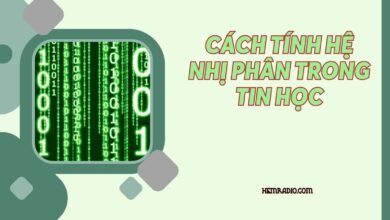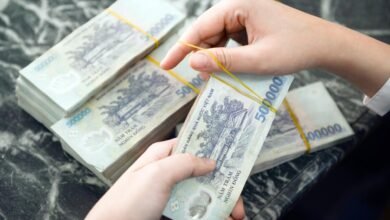Is it possible that efficient individuals are simply concealing their inner laziness? The debate over this intriguing notion has been ongoing, and if you’re still not convinced, you might not be part of the “lazy” crowd. Let’s delve into the truth – the “lazies” among us strive to complete tasks with minimal effort promptly, all for the sake of returning to our leisurely activities. Strangely enough, efficiency aligns seamlessly with our objectives and garners more favorable attention.
For instance, a glance at the dictionary defines “efficient” as being productive with minimal effort, while “lazy” refers to requiring little or no exertion. Surprisingly similar, aren’t they? But of course, the synonyms make a difference. Oh dear! If you identify as lazy, you might be labeled as indolent, shiftless, and slothful. Slothful! When you’re associated with the Seven Deadly Sins, you’re clearly in a pickle. In contrast, efficiency earns you high praise from Mr. Roget and his eponymous thesaurus. Not only are you energetic and economical, but you’re also capable, clever, accomplished, shrewd, and skillful. My personal favorite term – virtuous – also applies.

Let’s not overlook the tendency to pair “lazy” with the term “bastard.” Unjust, isn’t it? And where’s the acknowledgment for our role in perfecting procrastination? Consider Hamlet, one of history’s greatest procrastinators… Alright, maybe not the best example. The key takeaway is this: procrastination is an art. Mastering it takes time, as only a true virtuoso of procrastination can gracefully navigate the abyss of delayed tasks and emerge in the realm of witty comments unscathed.
Isn’t it about time that our contributions to society received the recognition they deserve? Take, for instance, our innovative “Paper Self-Management System,” a marvel enabling offices to function seamlessly. Also dubbed “Elimination by Procrastination,” this ingenious system empowers users to dispose of heaps of paperwork without physical contact. The secret? Identifying documents that resolve themselves sans human intervention. The magic extends to emails, texts, and voicemails too.
READ MORE:
- How To Create Freedom In Your Life
- Exploring the Literary Journey: Unveiling the Books of Philip Zelikow
Yet another feather in our cap is “National Procrastination Week.” Driven by our concern for the stress-ridden lives of our fellow citizens, we introduced this observance (March 4th-10th) to spotlight the merits of deferring non-urgent tasks. You’re welcome.
Naturally, I must acquaint you with famed historical procrastinators. First up, President Woodrow Wilson – a figure who banned child labor, limited railway workers’ hours, declared war, and composed fourteen points on various matters. I should verify those details later, maybe after a snack… Oops, where were we? Right, the noteworthy aspect: Wilson’s belief that “Today’s greatest labor-saving device is tomorrow.”

Then comes Mark Twain, the father of American literature and humor. He belonged to our tribe. Did you know he adopted “Mark Twain” due to the brevity compared to “Samuel Langhorne Clemens”? Imagine the hours he saved over his lifetime! He even patented time-saving devices like an “Improvement in Adjustable and Detachable Straps for Garments” and a self-pasting scrapbook. Brilliant!
Speaking of efficiency, when Twain learned his birth coincided with Halley’s Comet, he predicted he’d die upon its return – and he did. His motto? “Never put off until tomorrow what you can do the day after tomorrow.”
Our third hero, Les Waas, founded the “Procrastination Club of America.” With 12,000 active members and countless prospective ones who’ve yet to act, the club started humorously with a sign announcing postponed meetings. Waas, president for over five decades, jests about the club’s desire to bestow an “Annual Procrastinator of the Year” award, waiting on the nominating committee’s recommendation (Source: The Procrastination Equation by Piers Steel, Ph.D.).
So, what fuels procrastination’s roots? Is it a response to modern-day busyness? Fascinating questions, and here are the answers. Ancient civilizations, such as Indian philosophy and Zen Buddhism, embraced both action and inaction. Their teachings emphasize living in the present, fully aware of thoughts, actions, and sensory perceptions.
Dear multitaskers, pause your phones and tune in. Notice how Buddhist monks aren’t rushing around town? Serenity and mindfulness matter. Or maybe they’re just procrastinating…
RELATED POST:
The bottom line? Don’t agonize over procrastination. Important tasks will be tackled eventually, while minor matters sort themselves out. Remarkably creative individuals often excel at procrastination. As Virginia Woolf wrote, “It is in our idleness, in our dreams, that the submerged truth sometimes comes to the top.” You weren’t procrastinating – you were nurturing your creativity!
Cấp báo đển quý bạn đọc. Hiện nay, Hẻm cũng đang cũng đang rất cần chút chi phí để duy trì website này, để duy trì kho sách nói quý báu miễn phí cho mọi người, nhất là các bạn trẻ, học sinh, sinh viên. vẫn nghe mỗi ngày.
- - - - - - - - - -
Nhưng quý bạn cũng biết đấy, chúng tôi còn không muốn có không gian quảng cáo nhỏ nào (trừ khi quá bế tắc), mà chủ yếu nương nhờ vào sự hào phóng của những cá nhân như bạn để trả tiền cho các dự án máy chủ, nhân viên và bảo quản dữ liệu, những cuộc tấn công mạng mỗi ngày. Những tặng phí của quý bạn dù nhỏ hay lớn đều cực kỳ ý nghĩa với anh em chúng tôi, thực sự rất lớn, rất có ý nghĩa.
Xem chi tiết dòng tâm sự từ Admin Hẻm Radio, và những kêu gọi khẩn thiết để duy trì website, và Donate tại đây.

















































